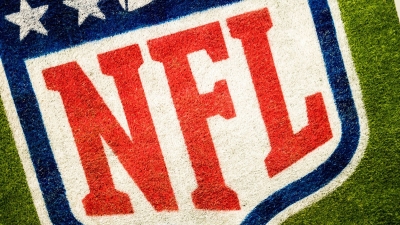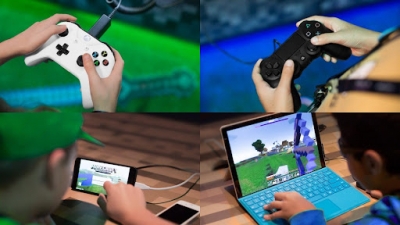Gaming online offers endless excitement, immersive storylines, and global communities, but it also exposes players to significant privacy risks. Whether logging in for a quick mobile session or diving deep into an open-world multiplayer, your data is constantly being collected and transmitted. Everything from your device’s location to your payment preferences can become accessible to platforms, third-party apps, and in some cases, cybercriminals.
As online gaming continues to evolve, so must our strategies to protect ourselves. Fortunately, with a few proactive habits and a clear understanding of how gaming ecosystems work, it’s possible to enjoy these digital spaces without compromising privacy.
Why Gamers Should Take Privacy Seriously
Gaming platforms, by nature, request access to more than just a username and password. From the moment a player sets up an account, they’re often asked to share personal information such as email addresses, locations, device data, and sometimes even access to microphones and cameras. This level of access can be necessary for gameplay or moderation, but it can also leave room for data misuse.
The risk increases when gamers link their accounts with other services. Logging in via social media or integrating with email platforms creates a larger web of exposure. If one point in the chain is compromised, it may provide a path for attackers to access more sensitive details than initially expected.
Payment data adds another layer of concern. Many players store card details within gaming platforms for convenience, but this can become a vulnerability if the platform’s security measures aren’t up to standard. That's why many players choose to game on verified platforms. For example, when gaming at these trusted casinos, users benefit from enhanced payment security and transparent privacy policies, an essential combination for those serious about protecting their data.
Create Strong Barriers at the Account Level
The most effective data protection begins with the basics. Using a secure and unique password for every gaming platform is essential. Unfortunately, password reuse remains a common habit. To address this, password managers can be a game-changer. They simplify the process of creating and remembering strong passwords, allowing gamers to avoid taking shortcuts.
Beyond that, enabling two-factor authentication (2FA) wherever possible is critical. This extra layer of protection typically involves entering a code sent to your mobile device or email each time you log in. It may seem like a small step, but it drastically reduces the chances of someone accessing your account without your knowledge.
Some gamers also opt for biometric authentication where available. Fingerprint or facial recognition can offer quick and secure access to mobile games without the need for typing. Additionally, physical security keys, while less common, provide an even stronger defence by requiring a physical device to verify logins.
Make the Most of Platform-Specific Tools
Many popular gaming platforms have built-in tools that help users protect their data. Unfortunately, these often go unused. Players are encouraged to explore their account settings and activate features like login alerts, device approval requirements, and spending limits.
For example, some platforms allow you to approve each new login attempt via a companion app or verification email. These alerts notify you immediately if someone is trying to access your account from an unfamiliar device. Early detection often differs between a blocked attempt and a successful breach.
Parents managing younger players’ accounts should also take advantage of parental controls. These settings can restrict certain features and limit how much information a platform can share or collect. Even adult gamers benefit from limiting data-sharing options, especially when it comes to interactions with third-party apps or browser extensions.
Secure Your Network and Devices
Data security isn't just about the platforms you use, it also depends on how you connect. Public Wi-Fi, while convenient, poses one of the biggest risks for gamers. If you're playing in a café or on the move, your connection could be monitored by someone with malicious intent. A virtual private network (VPN) protects your data by encrypting your connection and concealing your IP address.
At home, your router plays a central role in maintaining security. Default passwords should always be changed, and firmware updates should be applied as soon as they become available. Some modern routers even offer built-in gaming modes that prioritise safe, low-latency connections while limiting exposure to harmful traffic.
DNS filtering is another useful tactic. By blocking access to known malicious domains, DNS filters can prevent phishing attempts or suspicious downloads from ever reaching your device.
Keep Communications in Check
While it’s natural to engage with fellow players through chats, forums, and voice channels, these can also be sources of risk. Strangers in game lobbies might seem friendly but could be fishing for personal information. Always be cautious about what you reveal during a session. Avoid sharing details such as your full name, address, school, or work information, even if the person seems trustworthy.
Reviewing the privacy settings of your communication tools is equally important. Services like Discord, for example, allow you to manage who can send you messages or friend requests. Tightening these settings helps reduce unwanted contact or social engineering attempts.
If you stream your gameplay or share clips online, take steps to avoid exposing private content. It’s safer to capture only the game window instead of your entire screen, which might reveal sensitive notifications or personal files.
Choose Safer Payment Methods
Handling payments securely is just as important as protecting your login details. Rather than storing your primary card information on gaming platforms, consider using alternative methods. Virtual credit cards, which generate single-use numbers, provide a buffer between your financial accounts and the gaming site. If one number is compromised, it can’t be reused elsewhere.
Prepaid cards tailored to gaming platforms offer another layer of safety. These cards are easy to buy and limit potential losses in case of a breach, as they are not linked to your bank account.
Play It Safe—Your Data Is Worth Protecting
Online gaming should be fun, but that doesn't mean you should leave your data unguarded. By building smarter habits and staying informed, you can enjoy everything the gaming world offers while keeping your personal information secure.
Take the time to audit your settings, choose platforms that respect privacy, and make conscious decisions about how you connect and interact. With the right precautions, you can stay in control and focus on what really matters, playing and enjoying the games you love.






